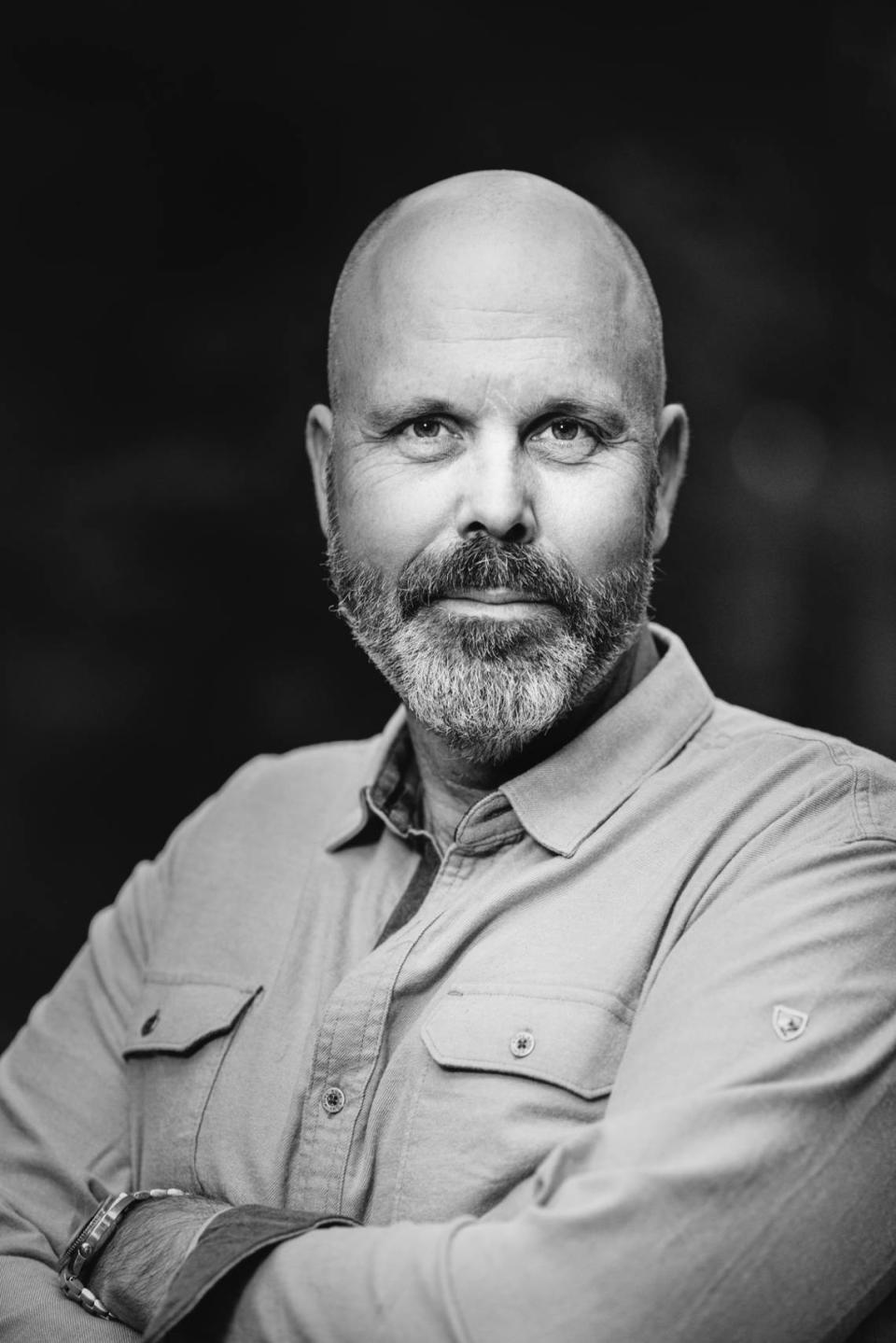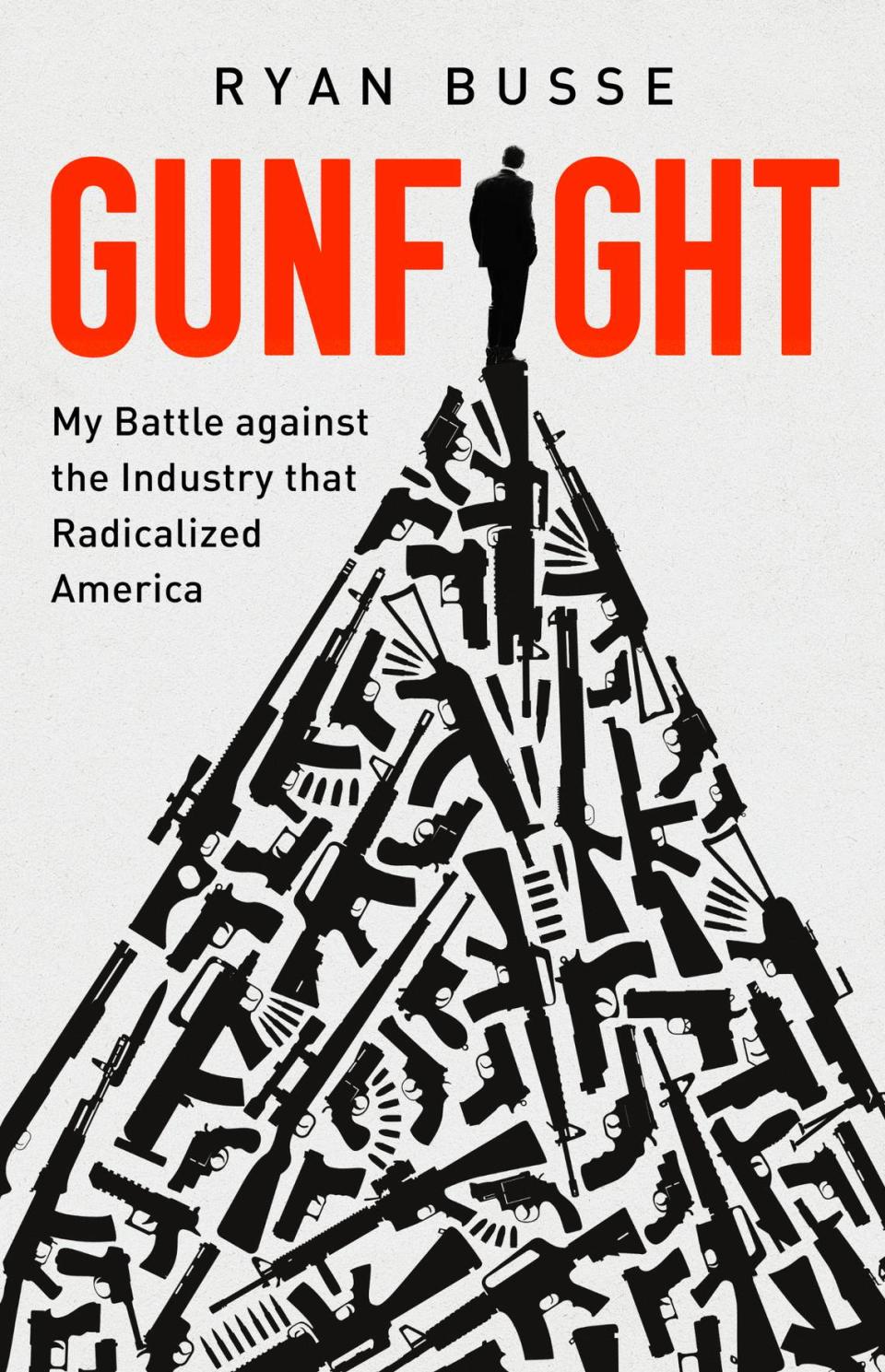Reasonable gun owners need to push back against toxic gun culture | Opinion
More people like Ryan Busse need to be at the head of the conversation about gun violence, mass shootings and gun culture in the United States.

Busse is the author of “Gunfight: My Battle Against the Industry that Radicalized America.” He’s a gun owner, grew up with guns and even worked for 25 years as a gun sales executive.
But he recognizes that gun culture has changed for the worse over the past 25 years, and our civic debate around guns and our ability to find solutions is broken.
“The divisiveness, the chasm, the hating each other in our workplaces, families split over politics and this sort of all-or-nothing-ism that we now live with in our everyday politics, I think that all has its roots in NRAism and in the gun issue,” Busse said during The Idaho Way livestream Wednesday. “That’s where this all-or-nothing existential battle, sort of conspiratorial hatred battle was first forged, and that’s not the way I grew up with guns.”
So far this year, there have been 163 mass shootings — more mass shootings than days. At this time last year, the country had experienced 146 mass shootings.
In the past month alone, four people were killed and 28 others injured in a mass shooting at a crowded sweet 16 birthday party in rural Dadeville, Alabama; four people were killed and eight others injured, including two police officers, in a mass shooting at a bank in Louisville, Kentucky; and three children and three staff members were shot and killed at a private school in Nashville, Tennessee, on March 27.
America experiences more than 600 mass shootings a year. The Gun Violence Archive tracked more than 647 mass shootings in 2022 and 690 in 2021.
Uvalde, Texas; Buffalo, New York; Highland Park, Illinois, have all been the scenes of horrific mass shootings.
As opposed to the Tennessee congressman who said “we’re not going to fix” the problem of school shootings, others, like Busse, are seeking solutions. But gun culture extremists too often take absolutist positions and make all-or-nothing arguments that shut down debate before it even begins.
That zero-sum game is what Busse calls on his fellow responsible gun owners and gun lovers to fight back against.
“This sort of radicalized gun culture that you see today that is central – I think really a critical if not the critical totem on the far right side of our politics – none of that really existed when I grew up, and it didn’t really even exist in the first part of my career,” Busse said.
Busse sees the radicalization of gun culture correlated with the radicalization in our country’s politics.
“Throughout the first third of my career, the NRA was getting its feet under it and was figuring out, ‘Wait a second, hatred, fear, conspiracy, us versus them, that drives political outcomes.’ As we’ve seen it, it has driven a lot of political outcomes,” he said. “And the industry kind of slowly picked up, ‘Wait, if we partner with the NRA, the same things can drive firearm sales and profits.’ “
Before 2008, the United States had never consumed more than 7 million new guns in a single year, Busse said. By the time Barack Obama left office in 2017, the United States was consuming almost 17 million guns every year. In 2020, almost 23 million guns were consumed.
“And if you overlay that sort of upward graph in gun sales, and the sale of assault weapons and the sale of high-capacity pistols, and all the gun culture that we see today,” he said, “if you put all that on a graph, and then overlay the same graph of our political radicalization and again, hating our neighbors and families being split — the graphs are exactly the same, right? The slope is exactly the same. The timeframe is exactly the same. I don’t think that’s by accident.”
And with a new generation coming to political power, if there aren’t efforts to impose reasonable gun safety measures, gun rights in the long run will face greater risks.
“That’s why I think that the most Pro-2A stand you can take is to take the responsible stance that I’m advocating for right now,” Busse said. “I’m both hopeful and I’m issuing a warning that when these kids come to political power, if we do not fix it, they will, and I do not think they have any patience for the silliness that we’re undertaking right now.”
But Busse scoffs at solutions such as gun buybacks and is not in favor of bans on so-called “assault weapons.”
“I hear things like we should buy all guns back like they did in Australia,” Busse said. “Timeout, not happening. I mean, I don’t even know what to say to that. ... And frankly, to me, that just feeds the conspiracy theories from the other side about taking everybody’s gun, so I don’t have a lot of patience for that kind of thing. It’s just not even palatable in a country like ours.”
He has a similar reaction to proposals for bans targeting AR-15s.
“I think that’s taken way too much oxygen out of the room,” he said. “If you listen to me speak, read what I write, I’m very critical of the culture that has been built up in and around AR-15s. Very critical of it. I think it’s a political totem. Dangerous things are being done with the guns, so I could go on and on and on about how wrong and dangerous I think much of the culture around AR-15 is.
“That being said, I don’t like the ways in which the discussion of banning the guns just sort of plays into conspiracy, steps in traps and takes all the air out of the room.”

So what does he see as possible solutions?
Closing the so-called “gun show loophole” (which exists but not in the way most people understand it), increasing and improving the data that’s shared from background checks, increasing the minimum age to purchase a rifle and maintaining safety training standards, such as in-person, in-field training. He says safety and training have been “bled out of the culture.”
He draws comparisons between owning a gun and driving a car.
“I know, I get a lot of the people on the extreme right: ‘Well, but there’s not an amendment about cars’ — well just hang with me a second,” he said. “There is the basic tenet in our democracy about life, liberty and the pursuit of happiness.”
Consider what we do to keep children safe in school zones.
“Nobody in your truck or your car comes up to a school zone and says, ‘Oh, great, I gotta go 15 miles an hour here. Next thing, they’re going to take my car away,’” he said. “We don’t do that. We slow down because we want to protect kids in the school zone. We don’t jump to conclusions. We don’t make up conspiracies. We don’t slap anti-school zone stickers on the back of our truck. We don’t protest. We do what you do to be a responsible member of society.”
He said the same principle can apply with guns.
“The problem is that people with guns are buying into this ‘let’s remove school zones’ kind of argument,” he said. “That’s really dangerous for a democracy like ours.”
With freedom comes responsibility.
“These are not taking people’s rights away,” he said. “They’re simply protecting everybody else’s in the society’s rights. You know, you don’t live in a free society if you’re a kid in school hiding under the desk every time somebody calls in a gun threat or brings a gun. I mean, ask those parents in Uvalde how free those kids are. They’re not free.”
And sensible regulations are not a conspiracy, he said.
“This is not some communist plot,” Busse said. “This is simply what responsible, reasonable, decent people do in a democracy.”


